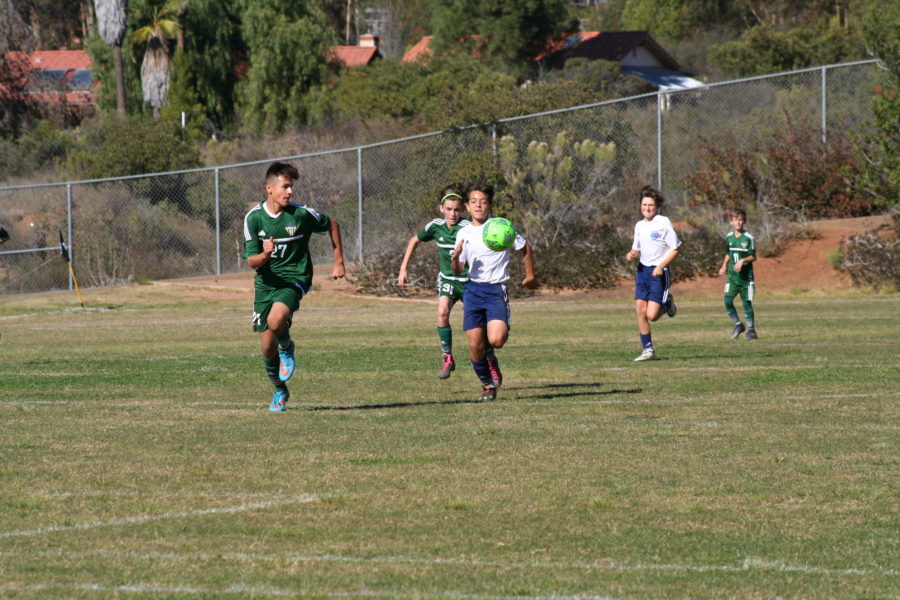One of the most difficult tasks us coaches have is distilling our information into short lessons for our players. We have years of playing and coachin
One of the most difficult tasks us coaches have is distilling our information into short lessons for our players. We have years of playing and coaching experience swimming about in our heads, and want so badly to lay it all on our players to help them grow. We think the more we say, the more we share, the more we “brain dump”, the better it is. After all, it’s like creating an ocean of learning in which our players can swim.
Unfortunately, this is not the case. Our players do not dive into the ocean of knowledge we spout forth at training. The mere volume of words, ideas, steps, advice, techniques is way too much for them.
Instead of picking and choosing what they need from the plethora of options (like a buffet), they get paralyzed by the mass of it all…and stand quietly on the shore more confused than ever.
Players aren’t meant to dive into our ocean of knowledge because they are seeds looking for the moisture to sprout their own knowledge. Our job is to help these seeds sprout at their learning rate (not ours). Throwing a seed in an ocean doesn’t yield crops. Dumping all you know on your players in one session won’t yield deep learning.
That big ocean of opportunity is merely a mechanism to drown the seeds and your knowledge is lost. If you want to really teach your players. If you want them to really learn. If you want to go deep, you must first go shallow. The key to learning for players is not in diving into our ocean of knowledge. The key is when they take our drops of valuable information and feed the seed of learning within them. Allowing it to germinate and grow at their rate. We need to feed the seed, not drown it.
How do we do this? One drop at a time.
Put down the fire hose, grab a dropper, and carefully add a little water to the seed each session, each game, each time you instruct. This takes a tremendous amount of time and patience, but if you are invested in your players you are willing to do this.
It will build on itself. Slowly, steadily, until they are strong enough and deeply rooted enough to take the full out pour of knowledge some day. Teams you have coached for years may be able to withstand the fire hose of tactical and technical information you want to share, but the newer and younger teams need a little more finesse.
Next season, try this as a communication pattern for distilling information on players:
- Pick one topic per session and focus solely on teaching that. It takes most people seven to ten exposure points to something before they learn it. So repeat your topic throughout the session.
- Pick one “goal” for the team each game (we call them “commander’s intent”). Let them know before the game what it is you want them to focus on and continue to reinforce that during the match. This also moves them off a results focus and onto a process focus (bonus!).
- Keep half time short and sweet with one thing you loved and one thing you want them to alter…bonus points if those link back to the game goal. Double bonus points if your game goal linked back the the session topics for the week.
- Treat a season of training like a season in a classroom. Everything should begin with a basic foundation and build from this foundation. Each subsequent topic is a progression from the prior topic and builds or expands it. If all sessions have a clear and steady progression, the learning will be deepened because of the building of new knowledge upon prior knowledge. This is no different from advanced mathematics building on basic math skills or adding a little weight to the your bench press each week as you get a little stronger.
- PAUSE. Say things, then pause. Let them fill in the blanks. Let them draw conclusions, or choose the answers to the rest of the question. Say just enough to teach the core concept and let them explore to find the rest of the answer. You don’t need to tell them everything if you put them in a session that allows them to take the little you do tell them and apply it to deepen the knowledge. This is similar to a writing prompt and letting them write the essay.
- Once you have given them a “commander’s intent” prior to a game (the one goal for the game that trumps all goals) and have reminded them to focus on it…sit down and shush. Watch the game and only remind them of the focus or point out when the commander’s intent was fulfilled. Otherwise, stop talking and enjoy the game.
I bet a few of you skipped right to the bullet points of this article. Our players want bullet points too, so be ready to feed the seed of knowledge with drops of water. Put away the fire hose and exercise a little patience.
